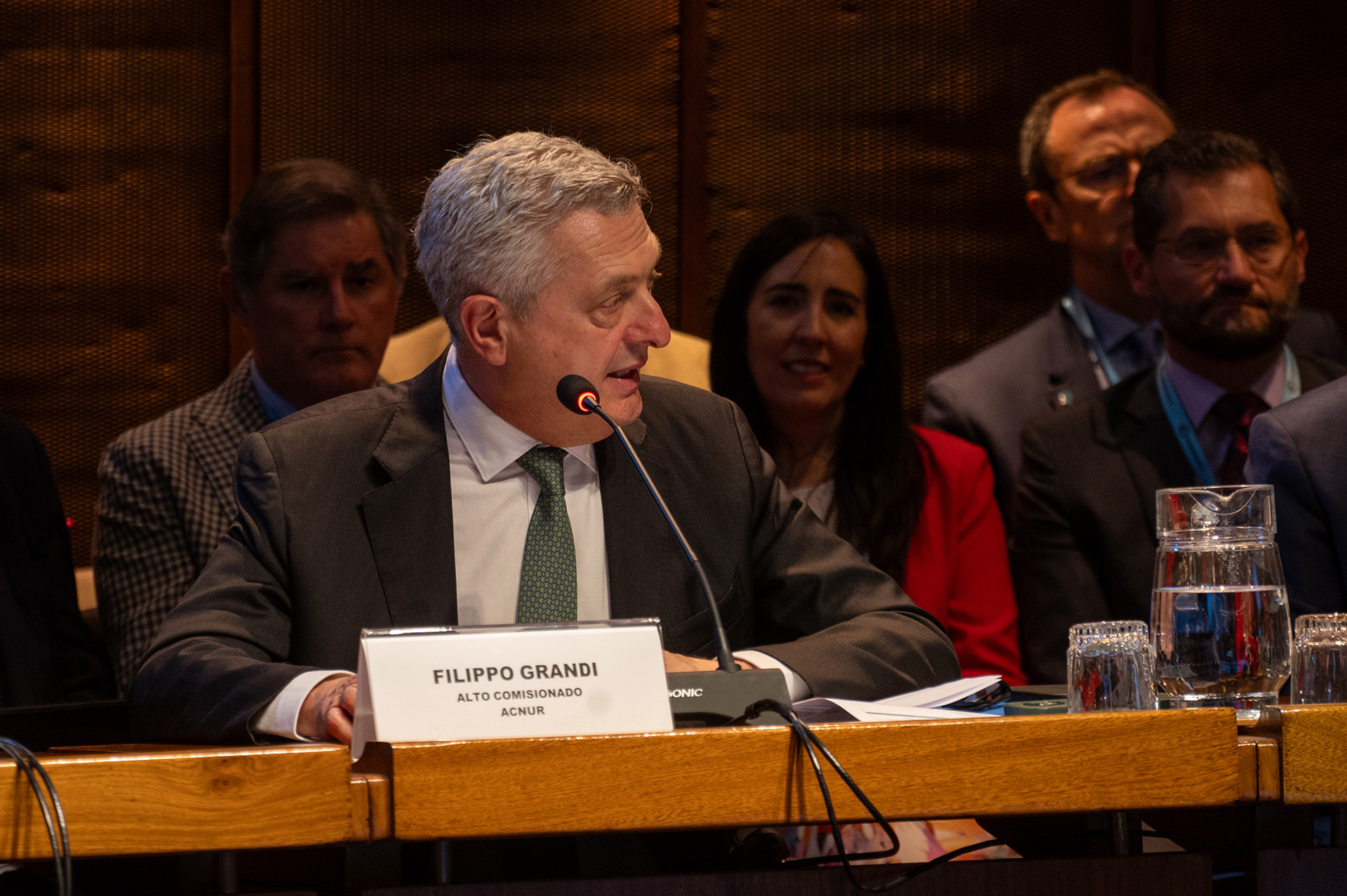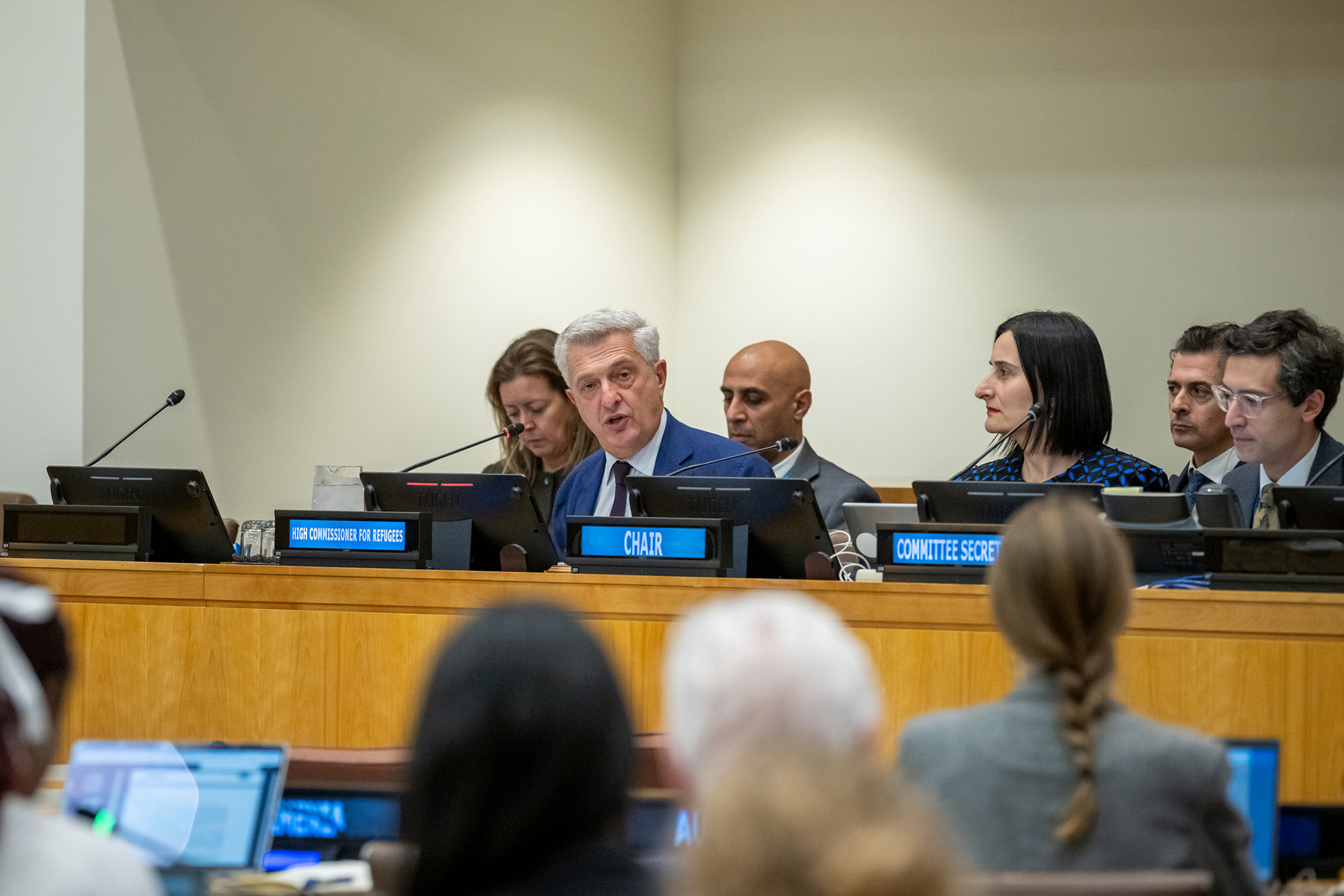High Commissioner's remarks at the Sudan Conference, London
High Commissioner's remarks at the Sudan Conference, London

UNHCR knows Sudan well – we have been present there for 60 years. In fact, I started my UN career inside Sudan.
The relentless pursuit of war is gradually extinguishing a resilient and generous nation – one that has also hosted refugees for many decades. I have been in many meetings on Sudan, and we are now running out of time to avoid catastrophe.
The ICRC (International Committee of the Red Cross) President has spoken of the situation inside Sudan. My colleague Clémentine Nkweta-Salami, UN Resident and Humanitarian Coordinator in Sudan, will also speak to this. I would like to add the regional dimension – I was in Chad just last week. Since the beginning of the war, 3 million refugees have fled to neighbouring countries, besides the millions displaced inside the country, who are candidates to become refugees as well if aid does not reach them.
They go to countries like Egypt, Ethiopia, and Uganda, and they go to countries with fragilities of their own, such as Chad and South Sudan, for whom hosting refugees adds an additional level of fragility. We need support to avoid the malignant spread of instability across the region. In these countries, the main challenge is not access, but resources. I hope that the pledges today will include the refugee appeal, which is just 10 per cent funded.
Many of your governments are currently freezing and cutting aid, leading to a perfect storm. The policy of open borders in the region is at risk, if more support is not given. Let's have no illusion, if people now receive less cash and support, they will move on. They are already more than 200,000 Sudanese in Libya. I know that these secondary movements raise big concerns for countries beyond the region, including in Europe.
This is another consequence of war.
And we can only reverse these trends through two things.
First, reverse the relentless quest for military solutions. And second, reverse the current trend of decline in aid.




